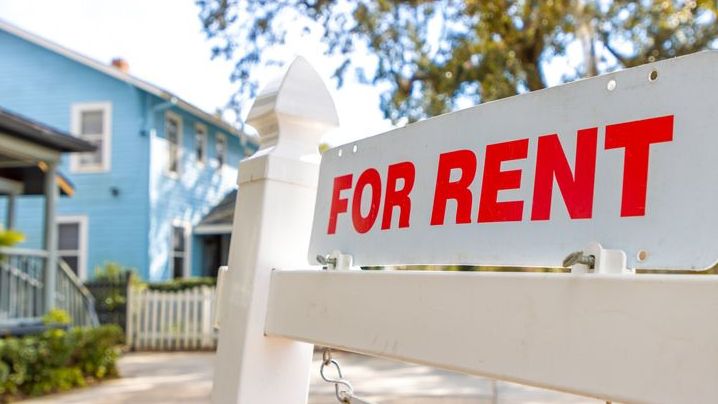Understanding how to manage rental property involves several key aspects, from maintaining the property to handling tenant relations. Regular maintenance is essential to prevent small issues from escalating into costly repairs. This includes seasonal checks and prompt attention to tenant-reported problems. Tenant screening is another critical component. A thorough vetting process helps in selecting reliable tenants who are likely to pay rent on time and care for the property.
Do you need help managing your rental property portfolio? Speak to a financial advisor today.
Tips for Managing Rental Properties Yourself
Managing a rental property on your own involves several key responsibilities. Effective marketing is crucial to attract quality tenants, while thorough screenings and a solid lease agreement ensure reliable occupancy. Timely rent collection, diligent financial management and regular maintenance are also essential to maintaining the property’s value and tenant satisfaction.
1. Find Quality Tenants
Finding quality tenants is perhaps the most important part of managing a rental property, and effective marketing is key for finding the right tenants. Utilize online listing platforms, social media and local classifieds to advertise your property. High-quality photos and detailed descriptions highlighting the property’s features and benefits can attract more interest. Providing virtual tours or arranging open houses can also help potential tenants get a better feel for the property.
Once you attract applicants, you’ll need to conduct thorough tenant screening, which includes background checks, credit history and references. This can help you select reliable tenants who will pay rent on time and take care of your property.
2. Draft a Compliant Lease
Drafting a comprehensive lease agreement is a fundamental part of how to manage rental property. This legal document outlines the terms of the tenancy, including the duration, how much you will charge for rent, due dates and maintenance responsibilities. It’s essential to be familiar with local, state and federal landlord-tenant laws to ensure your lease is compliant. Knowledge of these laws also helps you handle potential disputes or legal issues.
3. Collect Rent on Time
Collecting rent on time is also a critical component of managing rental property. Establishing a clear process for rent payment, including due dates and accepted payment methods, can reduce late payments. Beyond that, keeping accurate financial records is vital for tracking income and expenses and preparing for tax season.
4. Conduct Regular Maintenance
Regular maintenance and prompt repairs are key to preserving the property’s value and keeping tenants satisfied. This includes routine tasks like landscaping, cleaning common areas, and ensuring the HVAC systems are in good working order. Promptly addressing repair requests, such as fixing leaky faucets or broken appliances, prevents small issues from becoming costlier problems. Building a network of reliable contractors and service providers can streamline this aspect of property management.
Professional Options for Rental Property Management

One of the most common professional options is hiring a property management company. These companies offer comprehensive services, including tenant screening, rent collection, maintenance coordination and handling tenant complaints. Services like this are a common rental property tax deduction as well.
By leveraging the expertise of a property manager, landlords can reduce their workload and ensure their properties are managed effectively. This option is particularly beneficial for those who own multiple properties or lack the time and experience to manage their rentals independently. However, it comes at a cost – typically between 8% and 12% of monthly rent.
Hire an On-Site Manager
For property owners with large buildings or multiple rental units, employing a resident manager can be a practical solution. A resident manager lives on-site and handles the day-to-day operations of the property, including maintenance requests, rent collection and tenant relations.
This arrangement ensures that someone is always available to address issues promptly, enhancing tenant satisfaction and property upkeep. Resident managers typically work under the supervision of the property owner or a property management company, providing a balance between hands-on management and professional oversight.
Outsource Specific Management Tasks
Another approach to managing rental properties is hiring specialized contractors for specific tasks. This can include hiring a professional maintenance crew, a cleaning service or a legal advisor to handle lease agreements and tenant disputes. By outsourcing these tasks to experts, property owners can ensure that their properties are maintained to a high standard while still retaining control over the overall management.
Real estate agents can also be an option. They often have extensive knowledge of the local rental market, which can help in setting competitive rental rates and marketing the property effectively. Additionally, real estate agents can assist with tenant screening and lease agreements, providing a level of professionalism that can attract high-quality tenants. While their services might not be as comprehensive as those of property management companies, they offer targeted support that can make a significant difference.
Tips to Improve Your Rental Property Management

Leveraging technology can significantly ease the burden of managing rental properties. Property management software offers features like tenant screening, online rent collection, maintenance tracking and financial reporting. These tools can save time and improve efficiency, allowing you to manage multiple properties more effectively. This type of software can also be helpful for collecting rent on time. In fact, many options provide automated reminders and easy online payment options for tenants.
Consistent and timely rent collection is vital for maintaining cash flow. Use online payment systems to make it easier for tenants to pay rent on time. Automated reminders can also help ensure tenants are aware of upcoming due dates. Establishing a strict but fair late fee policy can further incentivize punctual payments, helping you maintain a steady income stream.
Additionally, effective communication with tenants fosters a positive relationship and helps prevent misunderstandings. Regularly checking in with tenants about their satisfaction and addressing concerns promptly can improve tenant retention. It’s important to be approachable and professional, balancing friendliness with firmness in enforcing lease terms. Providing a tenant handbook or guide can also be helpful, offering answers to common questions and setting clear expectations.
Bottom Line
Learning how to manage rental properties effectively can transform an investment into a steady income stream. By staying organized, addressing tenant concerns promptly and maintaining the property regularly, you can ensure both tenant satisfaction and property value. Leveraging technology for tracking rent payments and maintenance requests can streamline operations and reduce stress. Building good relationships with tenants fosters a positive living environment, potentially leading to long-term tenancies. Lastly, staying informed about local landlord-tenant laws helps in avoiding legal pitfalls, ensuring a smooth management experience.
Real Estate Investing Tips
- When investing in real estate, it’s important to build a network of reliable professionals including real estate agents, lawyers and contractors who can provide expert advice and services. A strong network can offer valuable insights and assistance in navigating complex transactions and property management.
- A financial advisor can certainly be an important component of your team of experts. Finding a financial advisor doesn’t have to be hard. SmartAsset’s free tool matches you with up to three vetted financial advisors who serve your area, and you can have a free introductory call with your advisor matches to decide which one you feel is right for you. If you’re ready to find an advisor who can help you achieve your financial goals, get started now.
Photo credit: ©iStock.com/Ajax9, ©iStock.com/Hispanolistic, ©iStock.com/Hispanolistic
